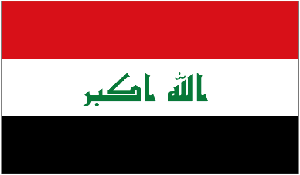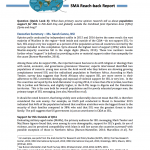Population Support for ISIL in Iraq

Question (QL3): What does primary source opinion research tell us about population support for ISIL in ISIL-held Iraq and globally outside the Combined Joint Operation Area (CJOA) (Syria and Iraq)?
Author | Editor: Canna, S. (NSI, Inc).
Opinion polls conducted by independent outfits in 2015 and 2016 derive the same result: the vast majority of Muslims in the region—both inside and outside of the CJOA—do not support ISIL. In fact, ISIL enjoys very low support as a percent of the population across all countries covered by the surveys included in this compilation. Syria showed the highest level of support (20%) while most Muslim-majority countries fall in the single digits (Mauro, 2015). These low numbers recede further when support is defined as providing active or material support rather than sympathy for the cause (Burson-Marsteller, 2016).
Among those who do support ISIL, the reported reason has less to do with religion or ideology than with social, economic, and governance grievances. However, experts interviewed identified two populations of concern: young men across the Arab world who they believe are showing growing complaisance toward ISIL and the radicalized population in Northern Africa. According to Mark Tessler, survey data suggests that North Africans who support ISIL are more severe in their adherence to ISIL’s extremist ideology and espousal of violence support for ISIL is very low. In the five countries surveyed by the Arab Barometer in spring 2016, it is less than 2% in Jordan, less than 3% in Jordan and Morocco, and slightly higher, in the 8-9% range in Algeria and the Palestinian territories. This is the case both for overall populations and for poorly educated younger men, the primary target of ISIL messaging. (see also, Marcellino et al).
It should be noted however, that being widely seen unfavorably does not mean that ISIL is therefore considered the sole enemy. For example, an IIACS poll conducted in Mosul in December 2015 indicated that 46% of the population believed that coalition airstrikes were the biggest threat to the security of their families compared to 38% who said that ISIL was the greatest threat to their family. The poll suggests that US government is just as unwelcome in CJOA as ISIL.
Contributing Authors
Abbas, H (National Defense University), Aguero, S. (US Army), Cragin, K. (National Defense University), Dagher, M. (IIACS), Everington, A. (Madison Springield Inc.), Bahar Firat, R. (Georgia State University), Gulmohamad, Z. (University of Sheffield), Jamal, A. (Arab Barometer), Kaltenthaler, K. (University of Akron & Case Western Reserve University), McCauley, C. (Bryn Mawr College), McCulloh, I. (Johns Hopkins University Applied Physics Lab), Moskalenko, S. (Bryn Mawr College), Revkin, M. (Yale University), Robbins, M. (Arab Barometer), Tessler, M. (Arab Barometer)

Comments